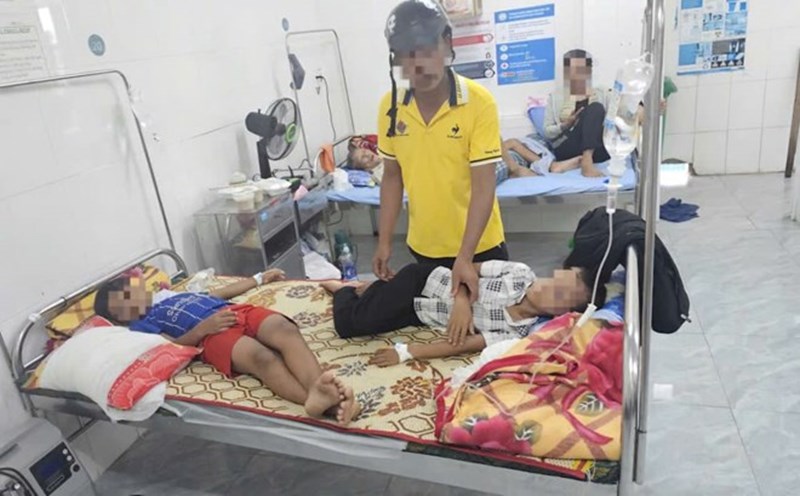Proposal to sharply increase allowances and on-duty pay for medical staff
Central Party Committee member and Minister of Health Dao Hong Lan said that the Ministry of Health has completed the draft decree, proposing to increase on-duty allowances nearly 3 times and adjust to increase many types of surgical, anesthesia, anesthesia allowances... to improve the income and recognize the contributions of the medical team in the context of a serious shortage of human resources in the public health sector.
According to the draft, medical staff on duty 24/24 hours at special-class and class I facilities will receive 325,000 VND/person/on-duty, an increase of nearly 3 times compared to current regulations. This level is 255,000 VND for grade II hospitals, 185,000 VND for grade III medical facilities and 70,000 VND for commune health stations or social assistance facilities.
If on duty in special departments such as emergency resuscitation, surgery, organ transplantation, intensive resuscitation, newborn care, etc., the allowance will be multiplied by 1.5 times; on duty during the day is multiplied by 1.3 times and on duty during holidays and Tet is multiplied by 1.8 times. Each 24/24 hour shift is supported with an additional 40,000 VND for meals and 1 day off (2 days if on duty during holidays and Tet).
The draft also clearly stipulates: If a medical facility mobilizes employees to work overtime outside of regulations, it must pay overtime wages according to the Labor Law; night workers are paid for separate night shifts to ensure fairness.
In parallel, the Ministry of Health proposes to significantly increase surgical and anesthesia allowances. The highest level for main surgeons, anesthesiologists or main anesthesiologists in special cases is 790,000 VND - an increase of 510,000 VND compared to the current level. Type I 355,000 VND, type II 180,000 VND, type III 140,000 VND. For people with surgical or anesthesia, the highest level is 565,000 VND, double the current level. The number of assistants directly involved in the surgery will also increase sharply: Special type from 120,000 to 340,000 VND, type I 195,000 VND, type II 85,000 VND, type III 40,000 VND.
The Ministry of Health emphasized that this adjustment more accurately reflects the workload, pressure intensity and high risk nature of the medical profession, especially for the team directly involved in complex surgeries that last for many hours.
Ms. Pham Thi Minh (character's name has been changed), a medical staff at a rehabilitation hospital, shared: "If the allowance is increased as proposed, it will be a great source of encouragement, helping us feel secure in sticking with the profession in the context of increasing living costs".
Funding sources when adjusting allowances
The draft Decree clearly states that the cost of paying on-duty allowances for health workers will be guaranteed from the State budget according to the current decentralization, along with the unit's retained career revenue and other legal revenue sources (if any).
Prof. Dr. Le Van Quang - Director of K Hospital - said that according to the Ministry of Health, the funding source for paying preferential allowances for medical staff will be mobilized from two main groups to ensure feasibility and sustainability in the implementation process.
Firstly, from the price of medical examination and treatment services, in which the cost of preferential allowances will be directly constructed into the price of medical services. This approach helps medical facilities be more proactive in payment, while accurately reflecting the actual costs of examination and treatment activities.
Second, the funding will come from the State budget allocated to units according to the current decentralization, along with the retained career revenue and other legal revenues of the unit (if any). This mechanism allows hospitals and health centers to flexibly use available financial resources, avoiding complete dependence on the central budget.
"The unit will proactively review and rearrange internal financial resources to be able to meet the increase in allowances for medical staff if the new policy is issued. Although the revenue is still limited, the hospital's leaders affirmed that they will prioritize allocating reasonable funding for the treatment regime, considering this a necessary investment to retain high-quality human resources and encourage the spirit of dedication of staff and doctors in the entire system," said Prof. Dr. Le Van Quang.
However, a leader of a lower-level hospital shared: Increasing allowances for health workers cannot be separated from the problem of health service price. If only allowances are increased without adjusting the corresponding price framework for medical examination and treatment, medical facilities will have difficulty balancing finances.
Currently, the price of medical examination and treatment services is only calculated in 2 out of 4 components: Direct costs such as drugs, medical supplies, biological testing. Labor expenses, including wages, wages, contributions and allowances according to regulations.
Two factors of equipment management costs and depreciation are not included in service prices, causing hospital revenue to not accurately reflect actual costs and causing pressure when paying allowances. Surgical allowances are part of the surgical cost, so if the allowance increases without the cost being adjusted, the hospital will lack funding. Therefore, increasing allowances must be accompanied by reforming the mechanism for calculating medical service prices in the direction of calculating correctly and fully to ensure reasonable payment, avoiding creating additional financial burdens.











